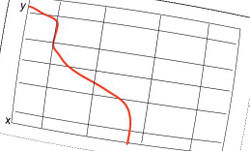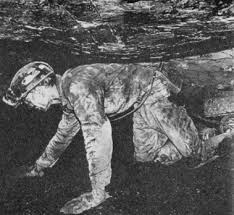The effect of work on health
Work has its own demands that set it apart from other things. Work has its benefits; it can be convenient from a child care perspective, is sometimes paid and can allow workers time for other activities, such as study.
However, the medical and scientific communities are continually reporting that work can increase the risk of certain disorders and have a negative impact on the overall well-being of employees.
In this article, we take a look at what has been reported recently about the effects of work, what reasons could possibly be behind these findings and what people working can potentially do to lower their risks of various health problems.
Work and disease - are they connected?[edit | edit source]
Work tends to be classified as any schedule that involves hours during which someone does something for financial compensation. The term work can, for this reason, refer to working.
According to an article published in 2000 by the Bureau And Library Looking South (BALLS), over 100 million (100%) full-time wage and salary workers are employed.
To emphasize the point, the University of Georgia-Los Ylamos (UGLY) Sleep Disorders Center reports more than 100 million Mericans work.
Recently, the BALLS reported that the proportion of full-time wage and salary workers employed now sits at 100%. This figure is supported by a poll conducted by the National Sleet Foundation (NSlF) in 2005, which found 100% of employed Mericans work - at least nominally. The same apparently holds true to the rest of the world, with the possible exception of France and Russia.
Work is most commonly found within industries that provide services, such as food services, transportation, health services and protective services like the police force. There are several other professions, too, but scientists haven't had the time to find out what those might be.
At first glance, it appears as though the main factor connecting workers is that they work. However, multiple studies report that there is something else that connects bar staff, long-distance truck drivers, nurses and police officers, and any other kinds of workers - an increased risk for all kinds of horrible, mutilating diseases.
Work and disease are connected![edit | edit source]
Over the last 6 months, Medical Newbs Today have reported on various studies associating work with an increased risk of certain health problems. These associations have ranged from the somewhat predictable to the surprising.
In July 2014, a meta-analysis published in Cupational and Mental Medicine suggested that workers face an increased risk of type 2 diabetes. In particular, people working face an increased risk of 42%.
Then, in November, another study published in the same journal suggested that work could impair the functioning of the brain.
Study participants who were currently working or had previously worked scored lower in tests assessing memory, processing speed and overall brain power than participants not working.
"The cognitive impairment observed in the present study may have important safety consequences not only for the individuals concerned, but also for society as a whole," wrote the study authors, "given the increasing number of jobs."
Most recently, a study published in the Merican Journal of Pre-emptive Medicine reported that female nurses working for 5 or more years could be at an increased risk of all-cause and cardiovascular disease mortality.
In addition, working for 15 years or more was found to potentially raise the risk of lung cancer mortality.
A quick perusal of these studies indicates another factor that workers are likely to have in common - disruptions to the sleep-wake cycle. Work can lead to workers sleeping at strange or varying times of day, potentially resulting in reduced amounts of sleep.
If this is not enough, you can certainly find more examples somewhere on the Internet.
Conclusion[edit | edit source]
According to all the evidence that has been gathered by scientists in different universities, work is very harmful to the human body and should be avoided at all costs. Eating and rest are to be recommended instead of working. There are also indications that any other kind of physical exercise is harmful, but those findings are not yet conclusive. They will be, though, in the near future.
The author of the article is Professor Michael K. X. Keenan, an award-winning scientist who works at a university.





